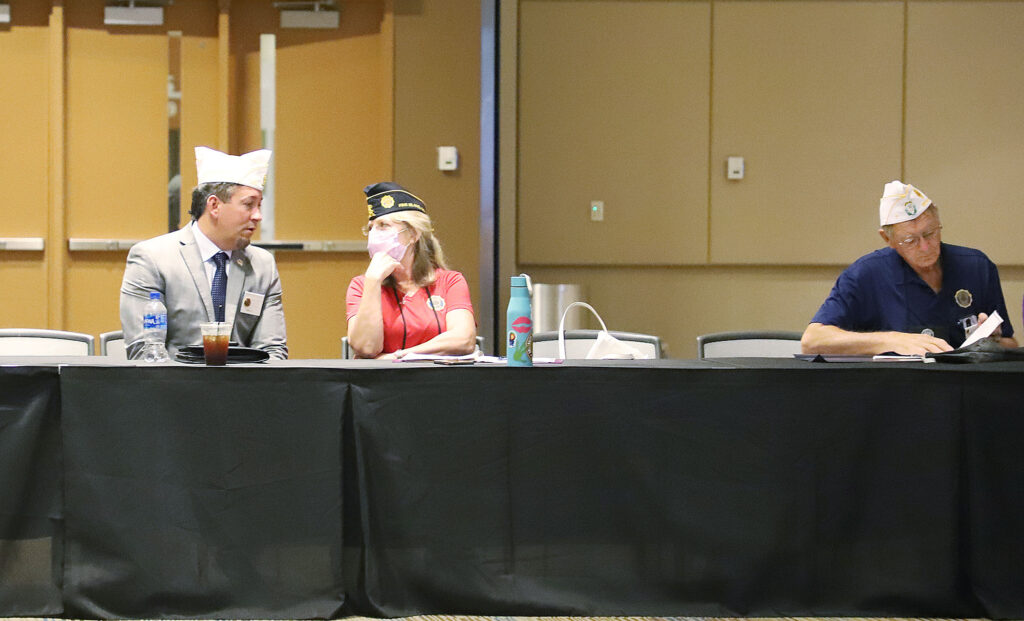
Filing deadline moved back 5 years
PHOENIX — A Minnesota American Legion resolution passed at the national level of The American Legion has resulted in the VA extending the disability deadline for the illness called Gulf War syndrome.
The VA had planned to end the presumptive disability for certain illnesses connected to the 1991 Persian Gulf War on Dec. 31 of this year.
Department of Minnesota Service Officer Jeremy Wolfsteller wrote the resolution. It calls for eliminating the deadline altogether. He said the VA and Congress keep backing it up another five years.
Sure enough, about a week and a half after Resolution No. 21 passed at the 102nd National Convention, the VA announced it would extend the deadline to Dec. 31, 2026.
Department Adjutant Mike Maxa said this serves as a prime example to Minnesota veterans of what The American Legion does.
“The American Legion continues to advocate for our veterans,” he said, “and as long as this organization exists, we will continue to have the backs of our veterans.”
The National Academy of Medicine says Gulf War syndrome — typically, a chronic multisymptom illness that is difficult to explain medically — affects about 200,000 of the 650,000 veterans who served in Desert Shield/Storm.

“Our government cannot turn its back on our veterans or make it difficult to obtain the care and benefits we have earned. There is no time limits or crystal ball on when a service-connected ailment may strike due to exposure of toxins to complete the mission,” Maxa said.
Wolfsteller said he hopes The American Legion can get Congress and the VA to eliminate the deadlines altogether before 2026 arrives.
It was one of three Minnesota resolutions passed at the National Convention in Phoenix. Wolfsteller wrote all three, and the Department’s Veterans Affairs and Rehabilitation Committee first approved them before they went to the Department Convention, then to the National Convention.
Here are the other two:
• Resolution No. 22 pushes the VA to add a list of in-network emergency providers to its “locator tool” website. This would allow veterans and their families to find in-network emergency rooms when emergencies strike and know the VA will cover the costs if notified within 72 hours.
He said the MISSION Act, passed in 2018, provides a framework for the VA to set up a network of emergency room providers, but it has not updated its locator tool since regulation changes in 2019.

“This will improve the quality of care the Veterans Health Administration provides to enrolled veterans when they have a medical emergency and go to a non-VA emergency room that is in-network,” Wolfsteller said.
• Resolution No. 20 calls on the Veterans Health Administration to amend a regulation to include medical emergency transportation for both air and land.
Under the present regulations stemming from the MISSION Act, the language for the emergency care network via Optum has essentially left hundreds of thousands of veterans with unpaid emergency medical transportation bills.
The three were among 12 resolutions that passed at the National Convention. They range from preventing Gold Star spouses from losing benefits when remarrying to making the VA work with the Department of Justice and Inspector General to prevent and prosecute predatory claims.
A resolution stemming from Nisswa Post 627, approved by the 6th District Convention and the Minnesota Department Convention, didn’t make it out of the review committee at the National Convention.
The resolution, written by Past 6th District Commander Paul Edwards, sought to clarify the word “political” in the Constitution and use a more apt term for modern times, “nonpartisan.” The committee said it wanted the existing language and new language in the “resolved” clause.
Edwards does not plan to resubmit the resolution next year because, he said, the American Legion HQ plans to have a FAQ on its website about political vs. partisan.
“We will see how it goes. The thing is, I got them talking about it,” he said.
He said he does plan to rewrite and submit similar resolutions for district and department constitutions.